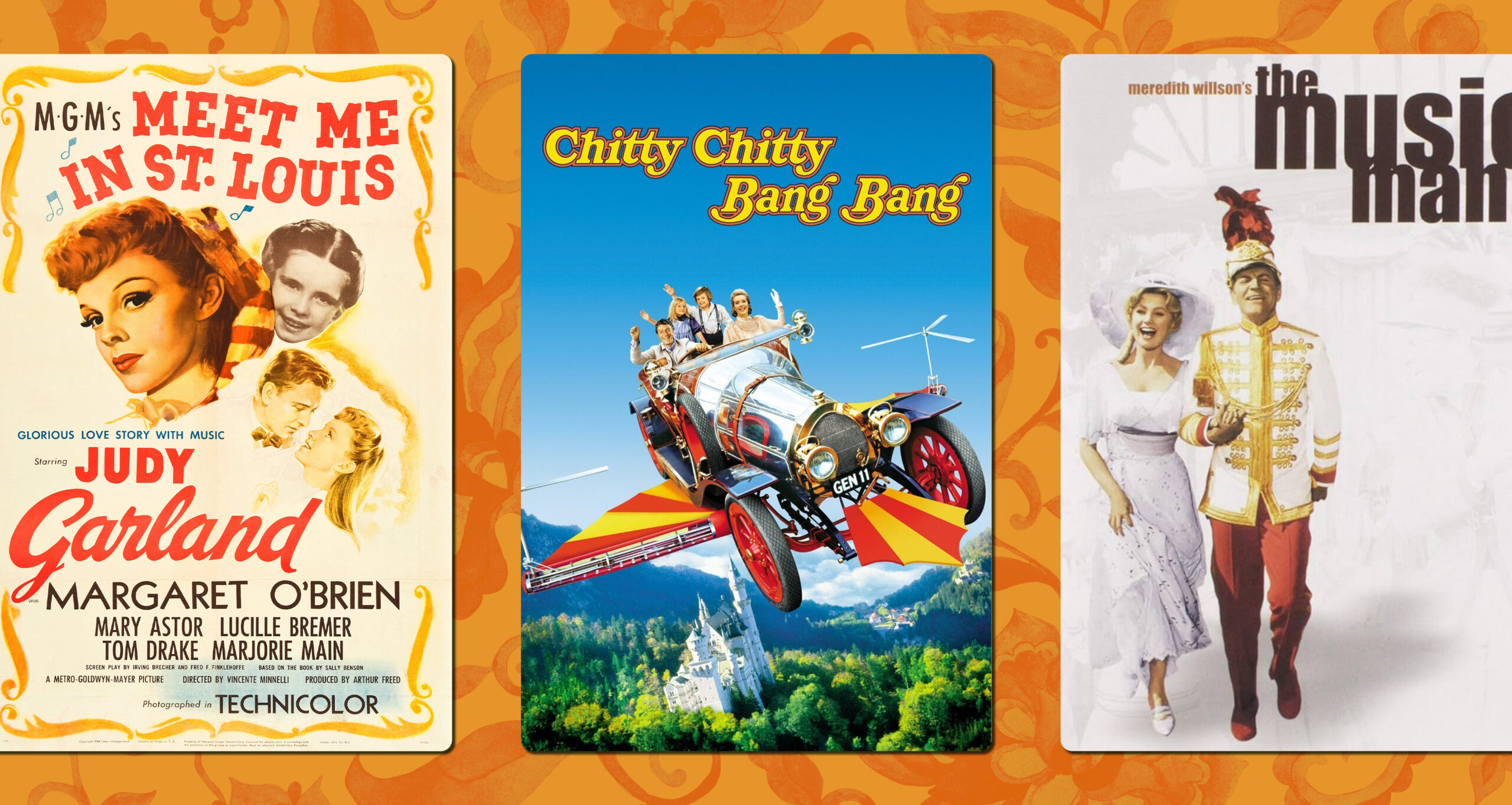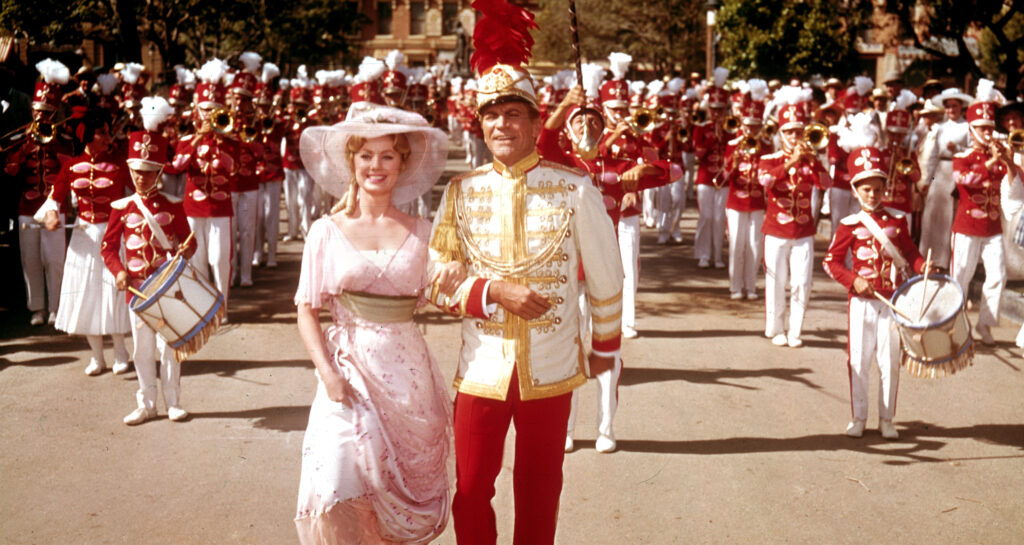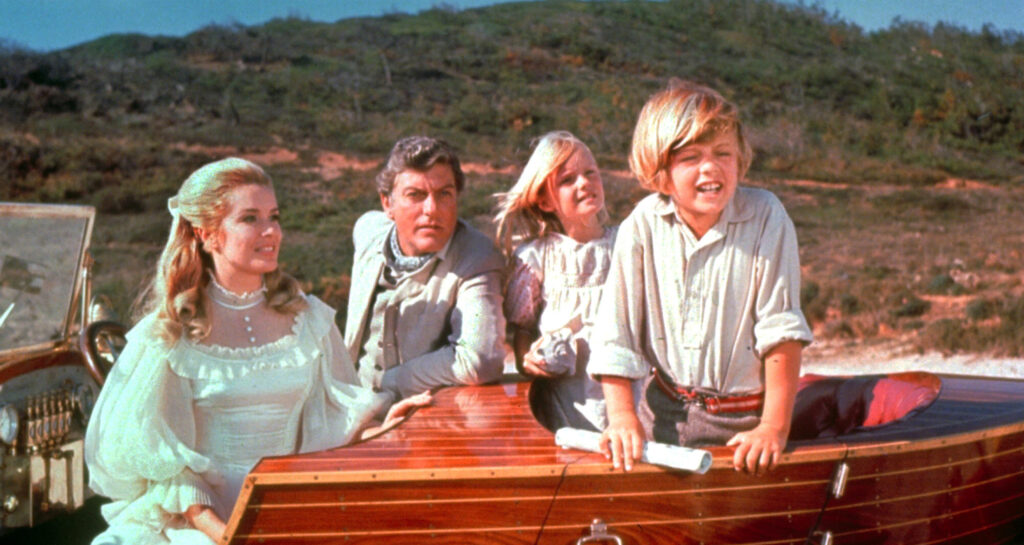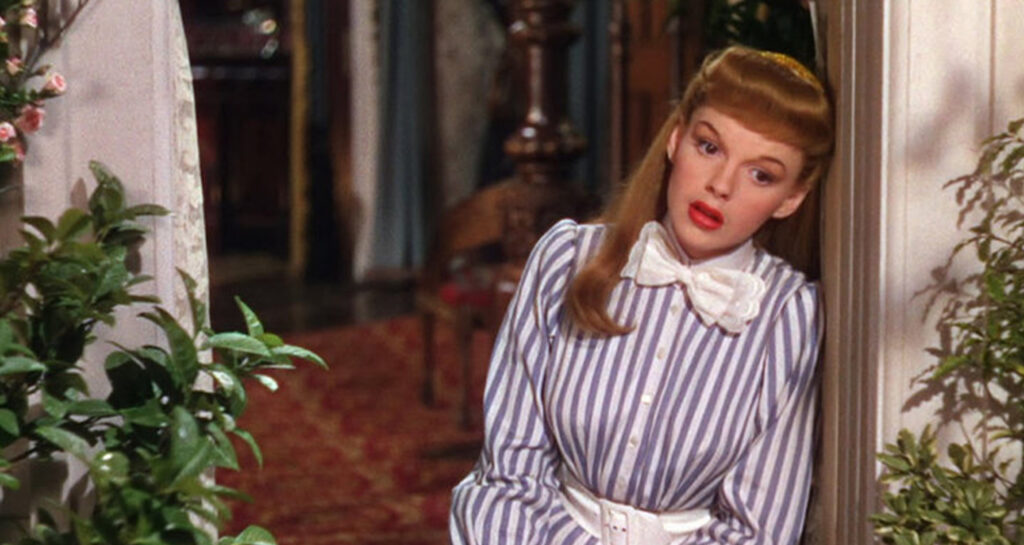3 Family-friendly musicals for movie night
Published on September 10, 2025

Summer may have passed, but there is still time to soak in a joy-filled musical rich with costumes, scenery, and sing-alongs. Here are three fun picks for your family movie nights that also give you something thought-provoking to chew on!

The Music Man
The Music Man draws us into rural River City, Iowa, in the early 1900s. A traveling salesman smooth-talks the town into ordering instruments for a boys’ band that he promises to lead. When the librarian simultaneously falls in love and catches on to this con-man’s scheme, how will the rest of the town react? Can this dishonest traveling salesman actually have changed the town for the better? The bright band tunes and quippy comedy will have the whole family engaged in this charming tale of small-town living.
Through the Catholic lens:
- While you watch the film, what do you think it reveals to us about humanity? Can people truly change? How is your perspective on this influenced by belief in the sacrament of confession and the Divine Mercy of God?
- What are some of the positives and the negatives of a close-knit community like River City? At the end of the film, has Harold Hill accomplished anything of value or is it all negated by his initially misguided intentions? Would you consider this an example of “God writing straight with crooked lines”? Why or why not?
- Marian, the librarian, has impossibly high standards for everyone around her, which cause her to harbor bitterness and resentment through much of the plot. Those “standards” are only challenged once she experiences an affective love towards Harold Hill. She sings “There were bells on the hill… but I never heard them ringing till there was you.” Some might call falling in love seeing the world through “rose colored glasses.” Is this what is happening here? Or does being in love allow us to see reality in a truer way? Does Marian see Harold as he truly is as a child of God?

Chitty Chitty Bang Bang
Caractacus Potts is an eccentric inventor and a dotting widowed father who hasn’t found much luck in the world until he comes upon Chitty. A retired racing car from the British Grand Prix, Chitty Chitty Bang Bang is full of mechanical surprises. When Carractikus fixes up the dilapidated car, a whirlwind of adventures begins. In this whimsical musical, imagination and reality collide. When the young family and newfound friend travel to the dream kingdom of Vulgaria, the viewer is reminded that there is more to things than meets the eye. This slightly dystopian kingdom (where there are no children allowed) invites us to see the true value of childlike wonder, imagination, and faith in the miraculous.
Through the Catholic lens:
- In Vulgaria, the king behaves no better than an overgrown toddler, full of tantrums and entitled. How does the absence of children lead adults to be more childish? St Therese is esteemed as a Doctor of the Church for her childlike faith. How would you describe the difference between being childish and childlike?
- A sense of wonder allows us to see that all of creation is a gift from God. He has not created the world and then stood off at a distance, but rather, he has an ongoing and intimate relationship with all of creation. This perspective of the world is deeply Catholic and varies greatly from the “Watchmaker God” of the Enlightenment. Does Caractacus have this kind of view of the world? What about the children? What about Truly?

Meet Me in St Louis
A happy family in a charming midwest town is looking forward to the 1904 World’s Fair, which will be held “right in their own backyard”! The story follows the family throughout the changing seasons of the year as their beloved town ebbs and flows through the rhythm of daily life. The charming daily life of ice delivery carts and homemade ketchup is idyllic but not without its fair share of conflicts. Heartache, love, changing friendships, and a prospective move to Chicago punctuate their year and send ripples of unrest through the family. Will they have to leave their beloved St Louis?
Through the Catholic lens:
- As Catholics, we are aware that not only is God omnipresent (everywhere at all times), but he is also particularly present in a place at a time in history in the Eucharist. As humans, we experience rootedness to a place because we are bodily and God, who freely sent his son to us, willingly chooses to be bound by this worldly reality when he is present to us in the Most Holy Eucharist. The material reality of “place” is richly meaningful. Our body is always in a place and, even in this modern age of jets and highways, it takes both effort and time to move ourselves to a different place. As body/soul composites, it is a deeply human reality to be aware and attached to a particular place, particularly in the context of family heritage and a hometown. Have you ever experienced the heartache that comes from leaving a beloved place? In what ways has our society lost sight of this value through the myth of progress? How can you see that the Smith family does value “place”?
- What do you think about the family life depicted in the musical? What elements are admirable to you? Are they too threatened by change? In one memorable scene, Esther goes through the house after a party, manually turning off every gas-powered light. Today, smart homes allow people to turn off all their lights simply by telling their phone to do so for them. So many external details of daily family life have changed dramatically since the Smiths’ life in St Louis. In what ways do you think that has impacted average family life?



